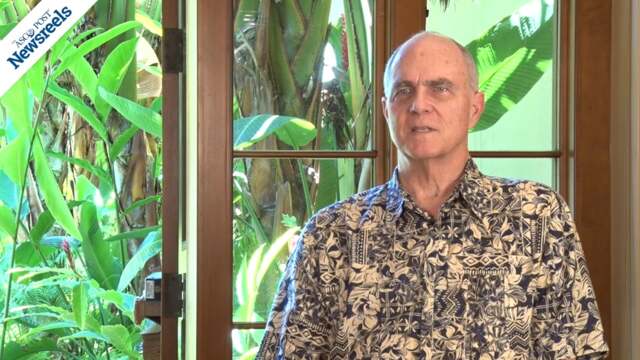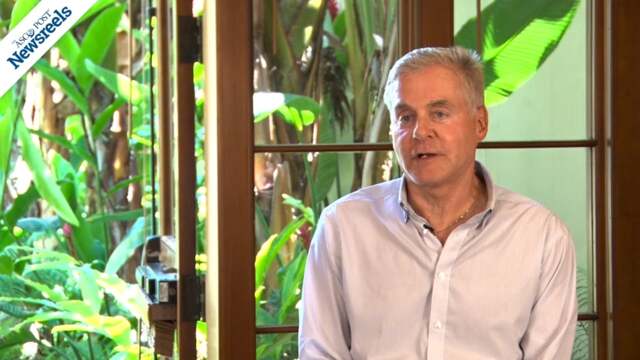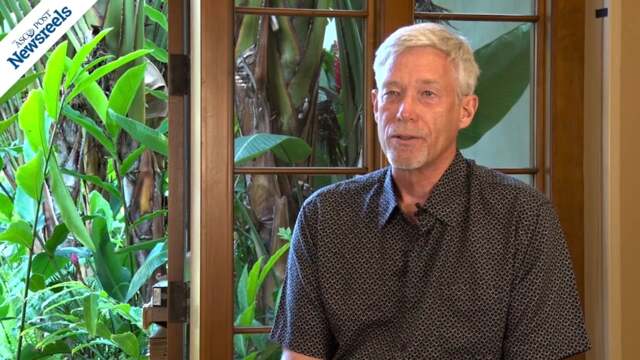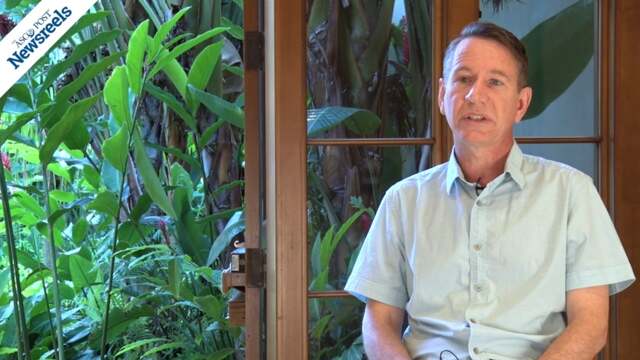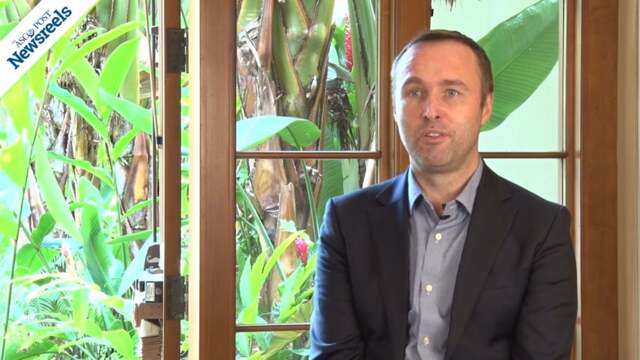2016 Pan Pacific Lymphoma Conference
James O. Armitage, MD, on Improving Lymphoma Treatment
James O. Armitage, MD, of the University of Nebraska Medical Center, discusses how an increased understanding of the biology of lymphomas and their multiple subtypes has had a major impact on the abil...
S. Vincent Rajkumar, MD, and Sagar Lonial, MD, on Treating Multiple Myeloma
S. Vincent Rajkumar, MD, of the Mayo Clinic, and Sagar Lonial, MD, of the Emory University School of Medicine, discuss key issues in treating this disease, including monoclonal antibodies, plasmacytom...
Nathan Fowler, MD, and Sagar Lonial, MD, on Treating Follicular Lymphoma
Nathan H. Fowler, MD, of University of Texas MD Anderson Cancer Center, and Sagar Lonial, MD, of the Emory University School of Medicine, discuss managing early relapsing/refractory disease.
Steven P. Treon, MD, PhD, on Treating Lymphoplasmacytic Lymphoma/Waldenström’s Macroglobulinemia
Steven P. Treon, MD, PhD, of the Dana-Farber Cancer Institute, discusses the question of what is the best upfront therapy for lymphoplasmacytic lymphoma/Waldenström’s macroglobulinemia.
Jonathan W. Friedberg, MD: Marginal Zone Lymphoma Therapy Update
Jonathan W. Friedberg, MD, of the University of Rochester Medical Center, discusses the use of rituximab as a single agent and in combination with chemotherapy, the emerging role of novel agents, and ...
Steven M. Horwitz, MD, on Sequencing New Agents in Relapsed Peripheral T-Cell Lymphoma
Steven M. Horwitz, MD, of Memorial Sloan Kettering Cancer Center, reviews the data supporting current treatment approaches for T-cell lymphomas and discusses the specific subtype criteria used to indi...
Richard I. Fisher, MD, on Defining and Treating Grey Zone Lymphoma
Richard I. Fisher, MD, of Fox Chase Cancer Center-Temple Health, discusses this rare disease––with features between classical Hodgkin lymphoma and primary mediastinal large B-cell lymphoma––and review...
Wyndham H. Wilson, MD, PhD, on Treating Diffuse Large B-Cell Lymphoma
Wyndham H. Wilson, MD, PhD, of the National Cancer Institute, discusses the molecular underpinnings of diffuse large B-cell lymphoma and targeted treatments.
Fredrick B. Hagemeister, Jr, MD, on Using Rituximab Maintenance
Fredrick B. Hagemeister, Jr, MD, of the University of Texas MD Anderson Cancer Center, discusses whether rituximab maintenance should be used in indolent lymphomas other than follicular.
Julie M. Vose, MD, MBA, on Basket Trials
Julie M. Vose, MD, MBA, of the University of Nebraska Medical Center, discusses this evolution of clinical trials, and using genomic methods to direct therapy.
John G. Gribben, MD, DSc, on Follicular Lymphoma: Still a Role for Transplant?
John G. Gribben, MD, DSc, of Barts Cancer Institute, discusses the pros and cons of both autologous and allogeneic stem cell transplantation in follicular lymphoma, and the challenges of selecting the...
Beth M. Faiman, PhD, MSN, CNP, AOCN, on Managing Multiple Myeloma
Beth M. Faiman, PhD, MSN, CNP, AOCN, of the Cleveland Clinic, discusses working with patients with multiple myeloma to minimize the toxicity of their treatment and improve their outcomes.
Julie M. Vose, MD, MBA, on Highlights of Pan Pacific Lymphoma 2016
Julie M. Vose, MD, MBA, of the University of Nebraska Medical Center, discusses the key presentations at the 2016 Pan Pacific Lymphoma Conference.
Bruce D. Cheson, MD, and Julie M. Vose, MD, MBA, on Staging Lymphoma
Bruce D. Cheson, MD, of Georgetown University Hospital, and Julie M. Vose, MD, MBA, of the University of Nebraska Medical Center, discuss whether lymphoma should be staged with a positron emission tom...
David G. Maloney, MD, PhD, on Lymphomas: Treatment With CAR T Cells
David G. Maloney, MD, PhD, of Fred Hutchinson Cancer Research Center, discusses the efficacy of chimeric antigen receptor (CAR) T cells for lymphoma and their toxicity.
Stephen M. Ansell, MD, PhD, on Precision Immunotherapy for Refractory Hodgkin Lymphoma
Stephen M. Ansell, MD, PhD, of the Mayo Clinic, discusses the role of checkpoint inhibitors in Hodgkin lymphoma and the efficacy of nivolumab and pembrolizumab.
Susan M. O’Brien, MD, on ALL/Lymphoma: Upfront and Salvage Treatments in Older Patients
Susan M. O’Brien, MD, of the University of California, Irvine, discusses the challenges of treating older patients with acute lymphoblastic leukemia and lymphoma, and the positive results with newer r...
Kieron M. Dunleavy, MD, on Lymphomas: Genomics and Genetics
Kieron M. Dunleavy, MD, of the National Cancer Institute, discusses the genomic landscape of aggressive lymphomas and how this is informing therapy decisions.
Andrew D. Zelenetz, MD, on Diffuse Large B-Cell Lymphoma: CHOP-R and EPOCH-R?
Andrew D. Zelenetz, MD, of Memorial Sloan Kettering Cancer Center, discusses the pros and cons of these two regimens, with or without another agent, in diffuse large B-cell lymphoma.
